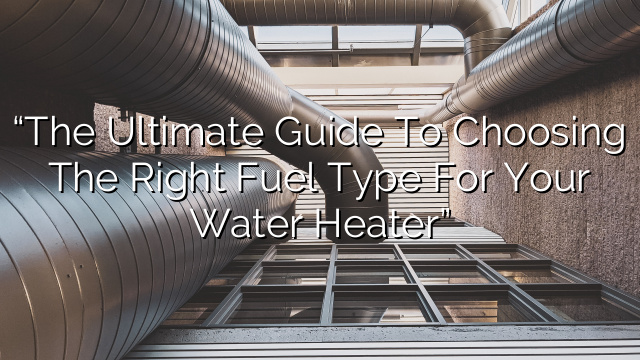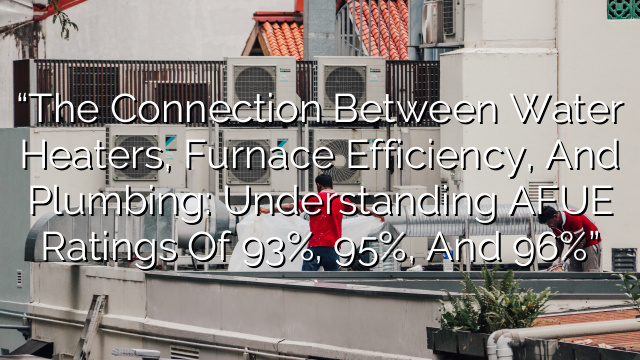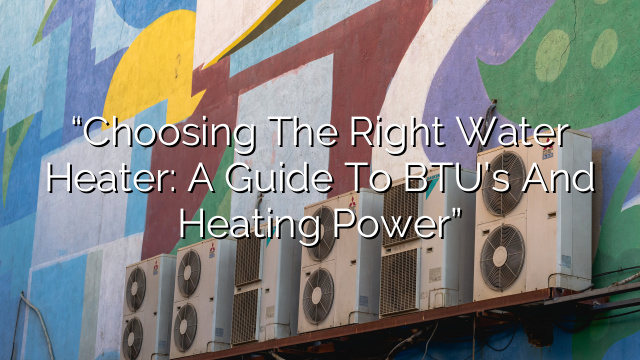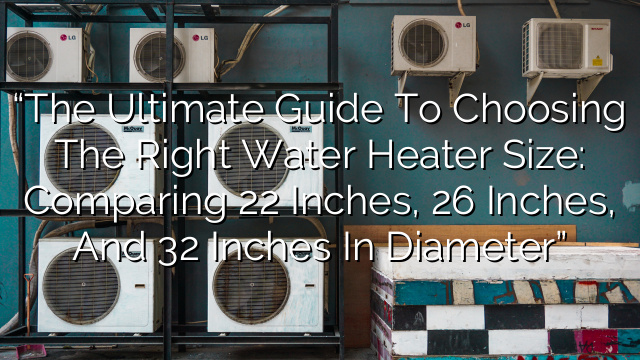Introduction
In today’s world, hot water is a necessity in every household. Whether it’s for showering, washing hands, or doing laundry, we all rely on hot water. And the heart of any hot water system is the water heater. But when it comes to choosing a water heater, one of the most important decisions you’ll have to make is the fuel type. Each fuel type has its own advantages and disadvantages, and it’s crucial to choose the right one for your specific needs.
Propane Water Heaters
Advantages:
- Energy Efficient: Propane water heaters are known for their energy efficiency, which means lower utility bills for you.
- Fast Heating: Propane water heaters heat water more quickly compared to other fuel types, ensuring you always have a hot shower whenever you need it.
Disadvantages:
- Higher Initial Cost: Propane water heaters typically have a higher upfront cost compared to electric water heaters.
- Requires Tank Installation: Propane water heaters require a tank installation, which can take up more space in your home.
Natural Gas Water Heaters
Advantages:
- Lower Operating Costs: Natural gas is generally cheaper than propane and electricity, leading to lower overall operating costs.
- Fast Heating: Natural gas water heaters heat water quickly, providing hot water on demand.
- Less Maintenance: Natural gas water heaters require less maintenance compared to other fuel types.
Disadvantages:
- Availability: Natural gas may not be available in all areas, limiting your options if you don’t have access to a natural gas supply.
- Higher Initial Cost: Natural gas water heaters can have a higher upfront cost compared to electric water heaters.
Electric Water Heaters
Advantages:
- Lower Initial Cost: Electric water heaters generally have a lower upfront cost compared to propane and natural gas water heaters.
- Easy Installation: Electric water heaters are typically easier to install compared to other fuel types.
- No Combustion By-products: Electric water heaters produce no combustion by-products, making them safer for indoor use.
Disadvantages:
- Higher Operating Costs: Electric water heaters tend to have higher operating costs compared to natural gas and propane.
- Slower Heating: Electric water heaters may take longer to heat water compared to other fuel types.
- Dependence on Electricity: Electric water heaters rely on electricity, so a power outage could leave you without hot water.
Gas Water Heaters
Advantages:
- Fast Heating: Gas water heaters heat water quickly, ensuring you always have hot water on demand.
- Lower Operating Costs: Gas is generally cheaper than electricity, resulting in lower overall operating costs.
- Highly Reliable: Gas water heaters are known for their reliability and can last for many years.
Disadvantages:
- Higher Initial Cost: Gas water heaters can have a higher upfront cost compared to electric water heaters.
- Requires Ventilation: Gas water heaters require proper ventilation to prevent the buildup of harmful gases.
Choosing the Right Fuel Type
Now that you know the advantages and disadvantages of each fuel type, you can make an informed decision based on your specific needs and circumstances. Consider factors such as the availability of fuel in your area, your budget, and your energy efficiency preferences.
FAQs
- What is the most cost-effective fuel type for a water heater?
Natural gas is generally considered the most cost-effective fuel type for a water heater due to its lower operating costs.
- Do I need to have a natural gas supply to choose a natural gas water heater?
Yes, you need to have a natural gas supply in your area to choose a natural gas water heater. Otherwise, it won’t be a viable option for you.
- Are propane water heaters more energy efficient than natural gas water heaters?
Propane and natural gas water heaters have similar energy efficiency ratings, so there isn’t a significant difference between the two in terms of energy efficiency.
- Can I install an electric water heater if there are frequent power outages in my area?
If you experience frequent power outages, an electric water heater may not be the best choice for you since it won’t be able to heat water during power cuts. Consider a fuel type that doesn’t rely on electricity, such as natural gas or propane.
- How long can a gas water heater last?
A gas water heater can last anywhere from 8 to 12 years, depending on various factors such as usage and maintenance.




